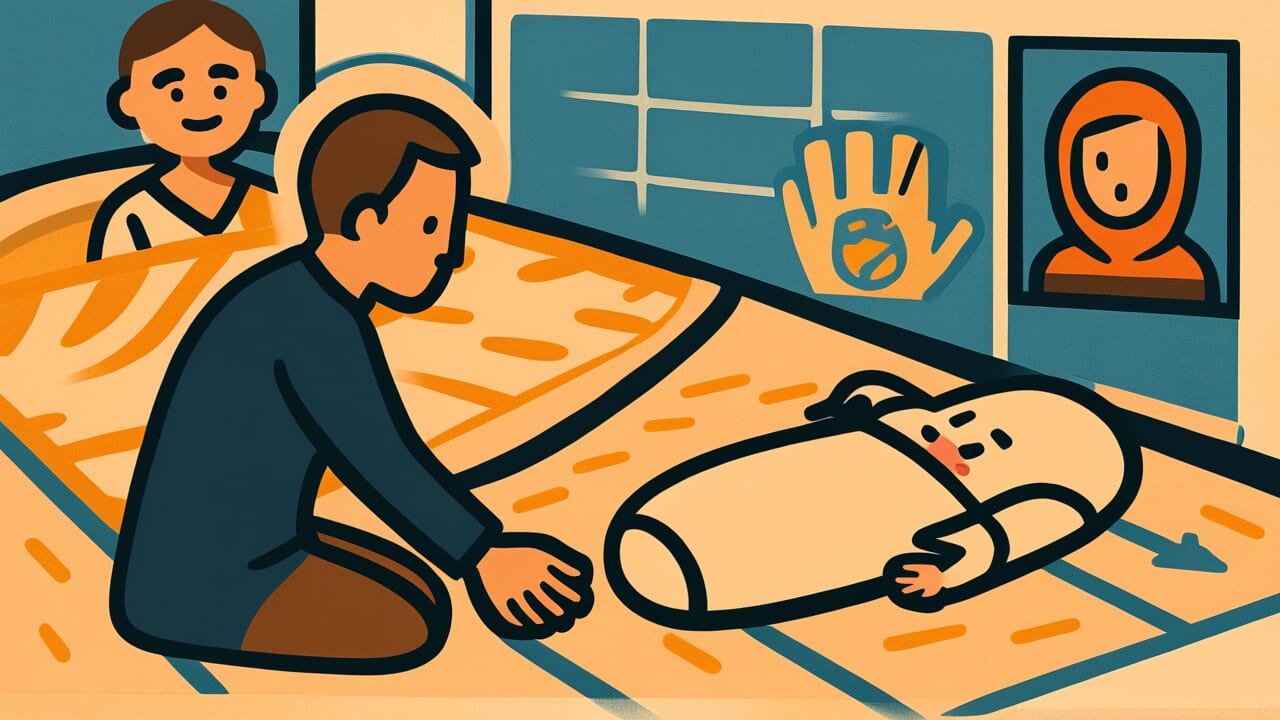How to Read “One day of living over a thousand years of death”
Shishite no sennen yori ikite no ichinichi
Meaning of “One day of living over a thousand years of death”
This proverb means that one day of being alive is far more valuable than a thousand years of fame after death.
No matter how great your reputation becomes or how long people remember your name, that all happens after you die. The present moment you’re living right now matters more than anything.
People use this saying when someone focuses too much on honor and reputation while neglecting their actual life. It also applies to those who get caught up in ideals and lose sight of their current happiness.
The proverb encourages people to cherish today rather than worry excessively about the future or what happens after death.
In modern times, this wisdom speaks to our obsession with social media validation and what others think of us.
No matter how impressive your achievements are, they mean nothing if you’re not alive to experience them. Living today to the fullest is the most valuable thing in life.
Origin and Etymology
The exact origin of this proverb is unclear, but its structure reveals interesting insights. The contrast between “a thousand years of death” and “one day of living” expresses a distinctly Japanese value system.
The number “thousand years” has long symbolized eternity and immortal fame in Japanese literature and thought. Meanwhile, “one day” represents the fleeting yet certain present moment.
This comparison likely reflects Buddhist influence. Buddhism teaches the importance of “this very moment” and emphasizes how we live in the present world over concerns about the afterlife or rebirth.
The samurai code may also have influenced this proverb. While warriors valued honor, they also understood the practical value of survival on the battlefield.
The teaching that living through today matters more than posthumous fame spread among common people as practical life wisdom.
During the Edo period, merchant culture developed realistic and practical values. This proverb likely gained widespread acceptance because it resonated with people’s everyday experiences.
Usage Examples
- Rather than leaving my name to posterity, “One day of living over a thousand years of death,” so I want to treasure time with my family now
- Instead of thinking about great achievements, “One day of living over a thousand years of death,” right? Let’s enjoy today
Universal Wisdom
This proverb has endured because it addresses a fundamental human contradiction. Everyone wants to leave proof they existed.
The desire for fame, to be remembered, to accomplish something meaningful is part of human nature. Yet at the same time, we are beings living in this present moment.
Throughout history, countless people have died pursuing fame. Warriors who fell for honor on battlefields, revolutionaries who died for ideals, scholars who sacrificed health for achievements.
Their lives were noble, but we must also ask: “Was it truly worth it?”
This proverb expresses the eternal conflict between human need for recognition and survival instinct. No matter how wonderful your reputation becomes, you can only enjoy it while alive.
Posthumous fame means nothing to the person who died. Our ancestors kept passing down this simple yet easily forgotten truth.
Being alive itself is a miracle and the greatest value. This proverb expresses this universal truth concisely.
That’s why it continues to resonate with people across time.
When AI Hears This
A living human body maintains a temperature around 36 degrees Celsius, higher than the surrounding environment. According to physics, temperature differences always try to equalize.
Your body temperature constantly tries to match the air around you. But as long as you’re alive, your body uses energy to maintain this temperature difference. This is an act of resisting the entire flow of the universe.
The moment you die, this resistance ends. Body temperature drops rapidly and reaches ambient temperature within 24 hours.
For the next thousand years, the remains stay in complete equilibrium with the environment. Nothing happens. No energy exchange, no change.
Physically, this is a “perfectly stable state,” but it’s also a “state that creates nothing.”
In contrast, one day of living is extraordinary. You consume about 2000 kilocalories of energy, trigger countless chemical reactions in your body, process information, and interact with your environment.
Your cells perform millions of protein syntheses per second and continuously copy DNA information accurately. All of this defies the universe’s fundamental principle that “everything becomes disordered” and creates order.
The physical “work” of one living day cannot be compared to a thousand years of death’s stillness.
This proverb intuitively captures the value of “life activity,” the rarest phenomenon in the universe.
Lessons for Today
This proverb teaches modern people the importance of living in the “now.” When you chase only social media validation, others’ approval, future success, or fame, you lose sight of what truly matters right in front of you.
Modern society increasingly measures self-worth through others’ evaluations. But no matter how many “likes” you collect or how impressive your title becomes, that doesn’t make today fulfilling.
What matters is how you live this present moment.
Specifically, instead of letting future anxiety or past regrets consume your mind, focus on what you can do today.
Casual conversations with family, laughing with friends, delicious meals, pleasant walks. These small daily joys are the very value of being alive.
Your life isn’t a story someone tells after you die. It’s a story you feel, experience, and live today.
Rather than sacrificing today for tomorrow, cherishing today naturally builds a fulfilling life.



Comments